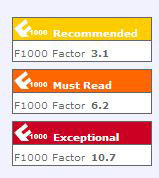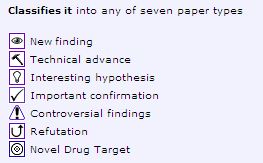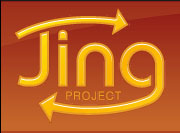HSLS offers classes on database searching, software applications such as Adobe Photoshop, bibliographic management, molecular biology and genetics, and library orientations. For more information visit the online course descriptions.
Classes are held on the first floor of Falk Library (200 Scaife Hall) in Classroom 1, and on the second floor in the Computer and Media Center in Classroom 2. Some classes are also held at the Western Psychiatric Institute and Clinic (WPIC) Library Classroom.
Class schedules are subject to change. Please consult the online class calendar for the most current information.
All classes are open to faculty, staff, and students of the schools of the health sciences at the University of Pittsburgh and UPMC. No registration is required. Seating for classes is first-come, first-served, until the class is full. Classes marked with an asterisk (*) qualify for American Medical Association Category 2 continuing education credit.
HSLS ORIENTATION
Introduction to HSLS Resources and Services
Falk Library: offered upon request to groups or individuals. Call 412-648-8796.
WPIC Library: offered upon request to groups or individuals. Call 412-246-5507.
SEARCHING DATABASES
PubMed Basics* (Falk Library Classroom 1)
Tuesday, July 22 10-11:30 a.m.
Monday, August 4 1-2:30 p.m.
Transitioning to Ebsco CINAHL* (Falk Library Classroom 1)
Thursday, July 17 10:30 a.m.-noon
Tuesday, August 5 9-10:30 a.m.
MOLECULAR BIOLOGY AND GENETICS RESOURCES
Introduction to Microarray Data Analysis* (Falk Library Classroom 2)
Wednesday, July 16 1-3 p.m.
DNA Analysis Tools* (Falk Library Classroom 2)
Wednesday, August 13 1-3 p.m.
SOFTWARE TRAINING
EndNote Basics (Falk Library Classroom 2)
(Note: This class is usually full. Please arrive 15 minutes in advance to ensure seating.)
Wednesday, July 9 10 a.m.-noon
Wednesday, July 30 1-3 p.m.
Monday, August 11 10 a.m.-noon
Adobe Photoshop for Beginners (Falk Library Classroom 2)
Thursday, July 24 10 a.m.-noon
Thursday, August 28 10 a.m.-noon
PowerPoint for Beginners
Thursday, July 10 (Falk Library Classroom 2) 10 a.m.-noon
Thursday, August 14 (WPIC Library Classroom) 10 a.m.-noon
PowerPoint for Beginners and Advanced PowerPoint (Falk Library Classroom 2)
Thursday, August 7 10 a.m.-2 p.m.
The WOW Factor: PowerPoint for Posters (Falk Library Classroom 2)
Tuesday, July 15 10-11 a.m.
Tuesday, August 19 10-11 a.m.
LUNCH WITH A LIBRARIAN
These informal, brown-bag lunches are held in Falk Library Conference Room B. Bring your own lunch. Drinks and dessert are provided. For more information visit the online descriptions.
The Nuts and Bolts of Publishing an Article: Resources & Strategies for Aspiring Authors
Tuesday, July 8 Noon-1 p.m.
PowerPoint 07
Wednesday, July 23 Noon-1 p.m.
Searching for Dollar$: Grant Resources on the Web
Tuesday, August 12 Noon-1 p.m.
Advanced Google: Tips and Strategies for Getting More from Google
Wednesday, August 27 Noon-1 p.m.
CUSTOMIZED CLASSES
Customized classes can be developed for your department, course, or other group.







 NIH investigators should be aware of two important dates related to the new NIH Public Access Policy. This legislation requires that all journal articles reporting on NIH-funded research be deposited into the National Library of Medicine’s online archive,
NIH investigators should be aware of two important dates related to the new NIH Public Access Policy. This legislation requires that all journal articles reporting on NIH-funded research be deposited into the National Library of Medicine’s online archive,  A picture is worth a thousand words. This is the idea behind the
A picture is worth a thousand words. This is the idea behind the 


